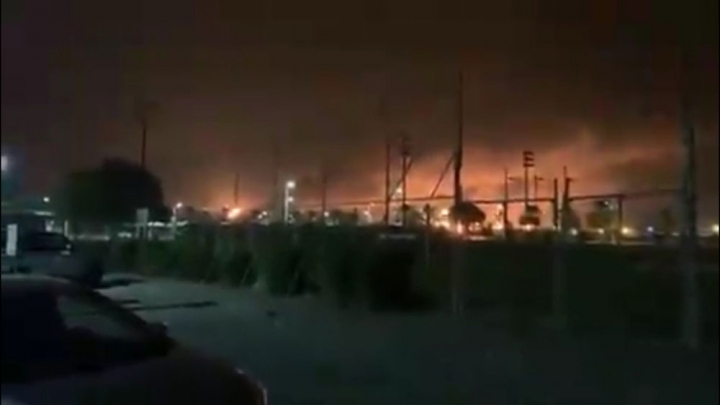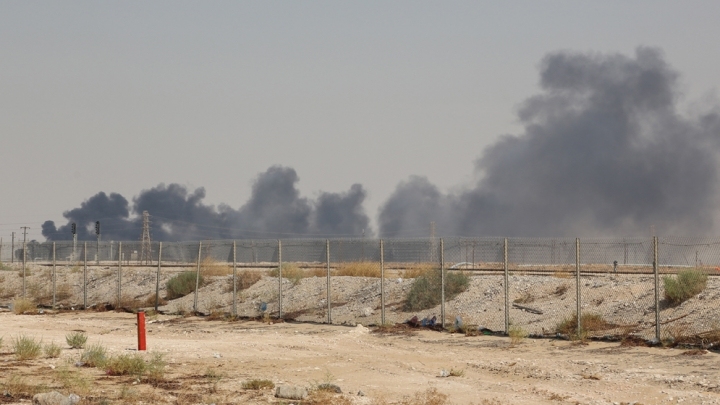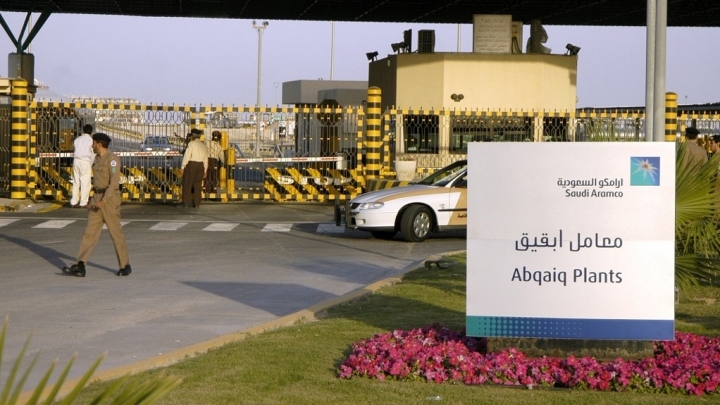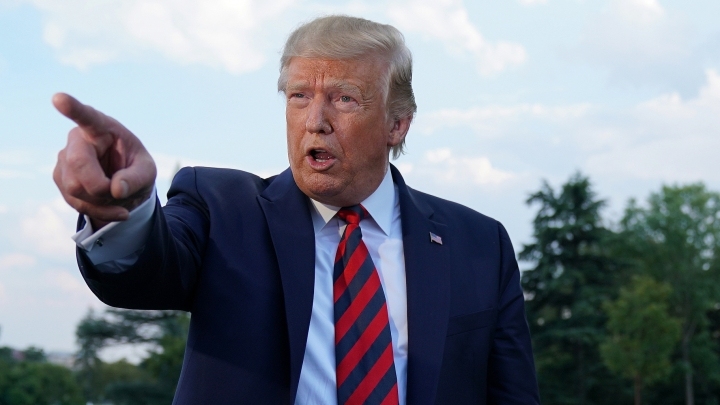Saudi races to restore oil supply after strike blamed on Iran
Saudi Arabia raced on Sunday to restart operations at oil plants hit by drone attacks which slashed its production by half, as Iran dismissed US claims it was behind the assault.
![Smoke billows from an Aramco oil facility in Abqaiq about 60km southwest of Dhahran in Saudi Arabia's eastern province on September 14, 2019. [Photo: AFP]](https://p1crires.cri.cn/01dcri/images/zhycms_chinaplus/20190915/016bd82c-ddd8-4d33-a48c-1731c41d868b.jpg?x-oss-process=image/resize,w_650)
Smoke billows from an Aramco oil facility in Abqaiq about 60km southwest of Dhahran in Saudi Arabia's eastern province on September 14, 2019. [Photo: AFP]
The Tehran-backed Huthi rebels in neighboring Yemen, where a Saudi-led coalition is bogged down in a five-year war, have claimed Saturday's strikes on two plants owned by state giant Aramco.
But United States Secretary of State Mike Pompeo pointed the finger squarely at Tehran, saying there was no evidence the "unprecedented attack on the world's energy supply" was launched from Yemen.
"The United States will work with our partners and allies to ensure that energy markets remain well supplied and Iran is held accountable for its aggression," the top US diplomat added.
That drew an angry response from Tehran, where foreign ministry spokesman Abbas Mousavi said: "Such fruitless and blind accusations and remarks are incomprehensible and meaningless."
The remarks were designed to damage Iran's reputation and provide a pretext for "future actions" against the Islamic republic, he said.
Saudi de facto ruler Crown Prince Mohammed bin Salman, whose nation is pitted against Iran in a decades-old struggle for regional dominance, has said the kingdom is "willing and able" to respond to this "aggression".
- Markets nervous -
Instead, the kingdom focused on restoring production at the plants, as the Saudi bourse slumped three percent as the week's trading began on Sunday morning.
Saturday's explosions set off fires that engulfed the Abqaiq plant, the world's largest oil processing facility, and nearby Khurais, which hosts a massive oil field.
Saudi's energy infrastructure has been hit by the Huthis many times before, but this strike is of a different order, abruptly halting 5.7 million barrels per day (bpd) or about six percent of the world's oil supply.
The full extent of the damage was not clear, nor the type of weapons used and reporters were kept away from the plants amid beefed-up security.
Saudi interior ministry spokesman Mansour al-Turki told AFP there were no casualties in the attacks.
Aramco has said it will dip into its stocks to offset the disruption, but the incident could batter investor confidence as its stock market debut looms.
The government hopes to raise up to $100 billion based on a $2 trillion valuation of the company in what would be the world's largest IPO, but the listing has been repeatedly delayed due to low oil prices, among other factors.
As markets closely watch Saudi's ability to get its industry back on track, Aramco CEO Amin Nasser said Saturday that "work is underway" to restore full production.
And newly appointed Energy Minister Prince Abdulaziz bin Salman said part of the drop would be offset by drawing on vast storage facilities designed to be tapped in times of crisis.
Riyadh, the world's top crude exporter, has built five giant underground storage facilities across the country that can hold tens of millions of barrels of various refined petroleum products.
(Story includes material sourced from AFP.)




